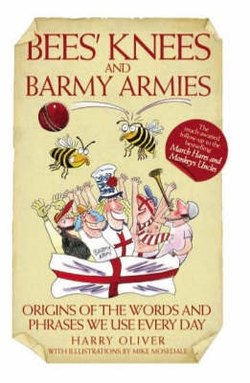Читать книгу Bees Knees and Barmy Armies - Origins of the Words and Phrases we Use Every Day - Harry Oliver - Страница 6
На сайте Литреса книга снята с продажи.
INTRODUCTION
ОглавлениеIt seems many moons ago that I penned March Hares and Monkeys’ Uncles, which was published in 2005 and much to my delight flew up the charts. From the sales of that book it seemed that an enormous number of people have a real interest in our language, and where our everyday phrases originate. Before I knew it I was being asked to write another book on the same subject, yet I had other ideas. I was already working on one about superstitions and old wives’ tales, and was very keen to get going on another about inventions after that. The words and phrases would have to wait a while. It was a tough decision to make, but I’m glad I did.
Since 2005 I have received hundreds of emails and letters filled with corrections and additional information about the entries in March Hares, as well as hundreds of suggestions for entries that might be included in another book. I have taken all of these into account, and some of them are featured in this book. As I began my research I was nervous that I might have to scrape the barrel a bit when seeking out words and phrases to write about – after all, I’d already written a book on the same subject. How wrong I was! English is endlessly rich, and it seems I’d temporarily forgotten how overwhelming a range of phrases I’d been able to choose from in the first place. There were still plenty of rich pickings to be had.
Uncovering the true origins of everyday expressions is always a challenge. Many of them have seductive myths attached to them, and it can be hard to ascertain the truth when fiction seems so much more intriguing. I have tried to get to the bottom of every entry in this book, and often the reality of a phrase’s history can be a little drab when compared to the legend attached to it. Still, it is always fun to include both.
As always, I set out to inform but at the same time entertain, as nobody wants to nod off while reading about our idioms. There are thousands of phrases left to be written about, and I only wish I had the time and space to include them all. As things stand, I have tried to include the most diverting of them.
I have done my best to be as accurate as possible, but with such a vast subject there will always be errors. These aside, I am perpetually astonished and baffled by how much academic texts far more austere than this humble volume tend to disagree with one another on etymological issues. Finally, if there is anything in this book that you would like to comment on, I would love to hear from you. Drop me a line at words@blake.co.uk
Till next time, then!
Harry Oliver
